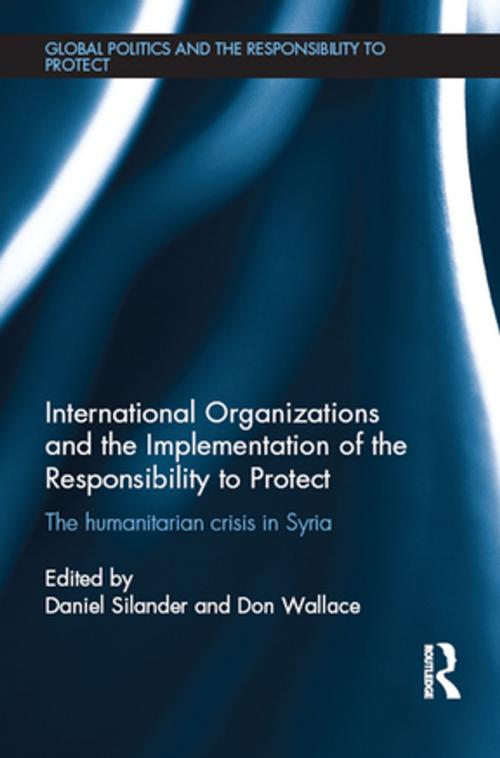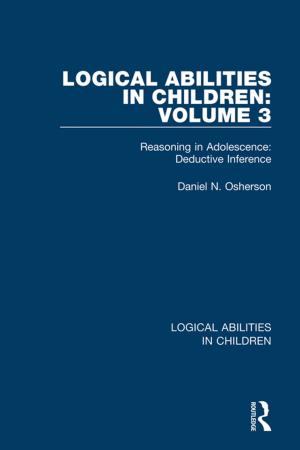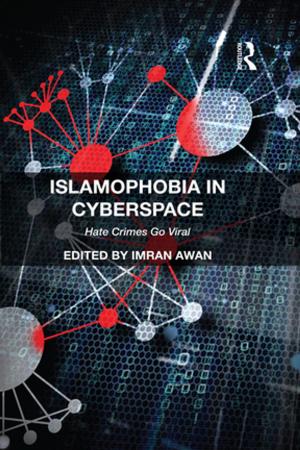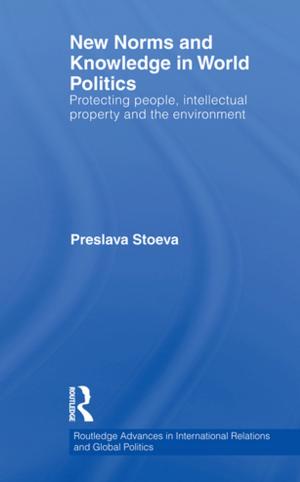International Organizations and the Implementation of the Responsibility to Protect
The Humanitarian Crisis in Syria
Nonfiction, History, Middle East, Social & Cultural Studies, Political Science, International, International Relations| Author: | ISBN: | 9781317486558 | |
| Publisher: | Taylor and Francis | Publication: | April 17, 2015 |
| Imprint: | Routledge | Language: | English |
| Author: | |
| ISBN: | 9781317486558 |
| Publisher: | Taylor and Francis |
| Publication: | April 17, 2015 |
| Imprint: | Routledge |
| Language: | English |
This book seeks to understand the obligation of the international community to implement the principles of the Responsibility to Protect (R2P).
With a focus on the humanitarian crisis in Syria, the volume examines what formal responsibility and actual capability international institutions have to protect and prevent civilians from systematic mass atrocities and presents an analysis of several prominent international organizations (IOs). Each chapter focuses on a specific organization and explores their formal responsibilities and how these pertain to the obligations of the R2P. Existing capabilities and actual abilities to address the challenges of R2P are analysed by looking at these issues before, during, and after the occurrence of the humanitarian crisis in Syria.
With the UN not fully engaged in the Syrian conflict, the systematic human rights abuses have engendered greater attention on other organizations. This volume argues that if the UN Security Council’s inactions result in an abdication of responsibilities under the UN Charter, there should not only be a discussion of how the UN must alter its approach, but also an examination of whether there are alternative R2P paths for other MNOs to take in the name of international peace and human security.
This book will be of much interest to students of R2P, humanitarian intervention, international organisations, Middle Eastern politics and security studies.
This book seeks to understand the obligation of the international community to implement the principles of the Responsibility to Protect (R2P).
With a focus on the humanitarian crisis in Syria, the volume examines what formal responsibility and actual capability international institutions have to protect and prevent civilians from systematic mass atrocities and presents an analysis of several prominent international organizations (IOs). Each chapter focuses on a specific organization and explores their formal responsibilities and how these pertain to the obligations of the R2P. Existing capabilities and actual abilities to address the challenges of R2P are analysed by looking at these issues before, during, and after the occurrence of the humanitarian crisis in Syria.
With the UN not fully engaged in the Syrian conflict, the systematic human rights abuses have engendered greater attention on other organizations. This volume argues that if the UN Security Council’s inactions result in an abdication of responsibilities under the UN Charter, there should not only be a discussion of how the UN must alter its approach, but also an examination of whether there are alternative R2P paths for other MNOs to take in the name of international peace and human security.
This book will be of much interest to students of R2P, humanitarian intervention, international organisations, Middle Eastern politics and security studies.















